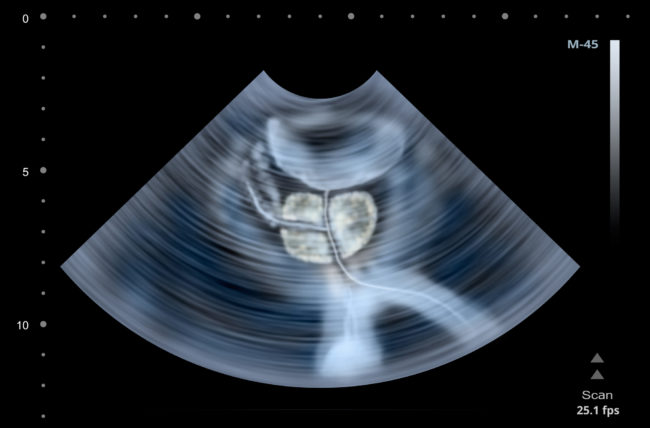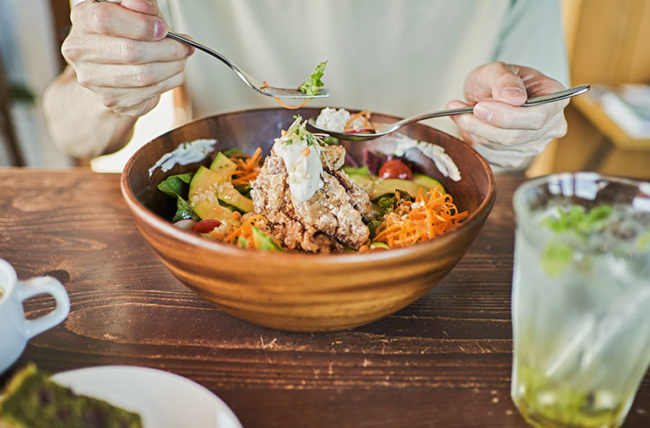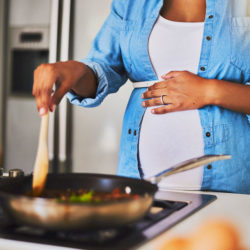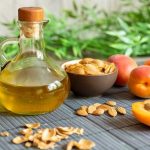When we think of a balanced, healthy diet, we tend to focus on weight loss, fitness in general, or lowering cholesterol. The goal of choosing certain foods to prevent cancer is less common.
But some studies suggest it might be worth keeping in mind, particularly when it comes to preventing prostate cancer, one of the most common types of cancer for men assigned to male at birth.
According to Brad Gill, MD MS, urological surgeon, nutritional study is informative but the data can be harder to prove compared to other scientific or medical studies. This is because there are many factors that could impact results.
There’s nothing wrong with a healthy diet. If some studies are right, certain foods may help prevent prostate cancer. Dr. Gill told us which healthier diets you should be considering.
What to eat for prostate health
Tomatoes
Lycopene is an antioxidant found in tomato and tomato products. Some studies have demonstrated that the consumption of lycopene may lower the risk for prostate cancer.
Tumeric
Tumeric has anti-inflammatory properties that may be important in the prevention of prostate cancer. Dr. Gill says that “Tumeric, along with other anti-inflammatory food products, could lower the levels of PSA (prostate-specific antigens).”
A prostate-specific protein , also known as a prostate-specific antigen, is produced by both healthy cells and unhealthful ones in your prostate. PSA blood levels are a standard test to screen for prostate carcinoma. A rapid rise in PSA levels is often an indication of prostate cancer. Slower increases of PSA over time may indicate normal prostate growth.
Avoid these foods when it comes to prostate health
As with the foods that may help prevent prostate cancer Dr. Gill states that information on what foods to avoid can also be a little uncertain.
He says that the biggest challenge in studying the effects of diet on medical conditions like prostate cancer is the fact that they often occur at a glacial pace, compared to other things like studying the effect of medication on blood pressure. If you want to study the impact of diet on prostate development, you would need to track subjects for 15-20 years, or even longer.
There is evidence to suggest that certain foods are bad for you. He adds that “what we know about prostate cancer is the same as what we know about colorectal carcinoma or heart diseases.” These dietary risks include
- Too much red meat
- Too much processed meat
- You can’t eat too many smoked or cured meats.
- Too much dairy.
Prostate Enlargement can also be exacerbated by poor diets, and has links with inflammation and diabetes. Dr. Gill says that studies suggest a diet high in sugar, processed foods, and carbohydrate can lead to inflammation, and worsen the prostate enlargement.
Bottom line: Be proactive
No matter what you eat, but keep it healthy. The best thing to do is to be aware of the personal risk factors you have for prostate problems and discuss with your doctor how you can monitor or treat them. Risk factors for prostate cancer can include:
- Age: AMAB patients over 55 years of age are at greater risk, and more than half of all prostate cancer cases are over 65.
- Family History: Know if anyone in your family has breast or prostate cancer.
- Obesity A healthy diet will have a significant impact.
- Smoking.
Talk to your doctor regularly about prostate screenings. Early detection is crucial, so be sure to keep in mind these risk factors as well as possible symptoms and visit your doctor regularly.
The screening for prostate cancer involves only a simple office visit, a physical examination and a blood test. It’s also a condition which, if detected during routine screening, is often treatable and curable.






















